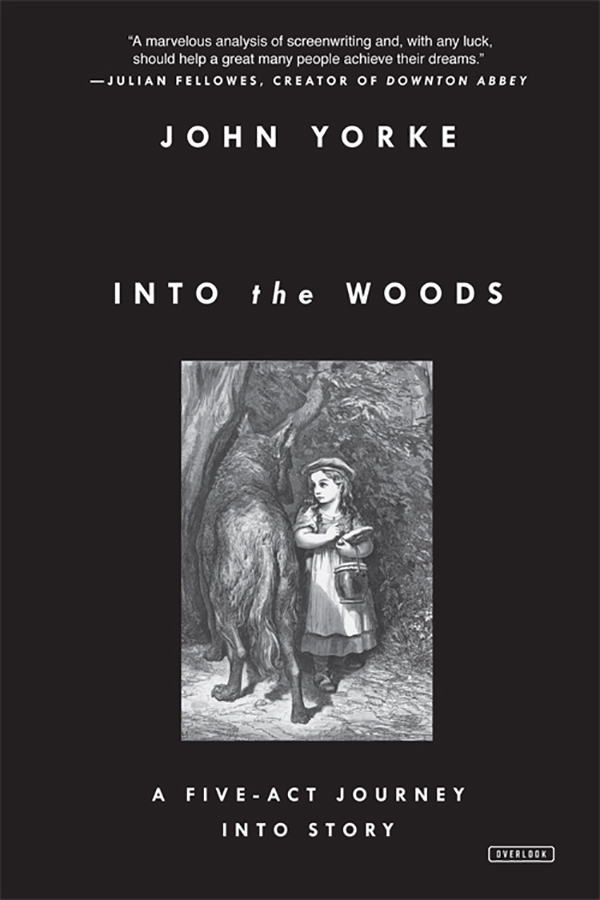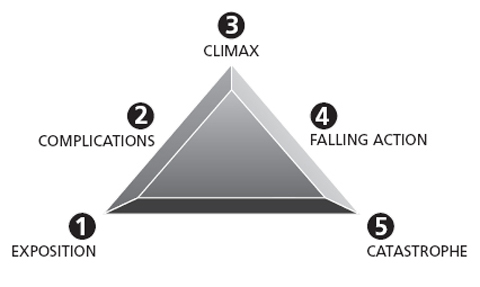Into the Woods - John Yorke

## Metadata
- Author: **John Yorke**
- Full Title: Into the Woods
- Category: #books
## Highlights
- ‘Once upon a time …’
Immediately you read that opening phrase, you know you’re going to encounter a setting, and in that place a series of events will occur – almost certainly to an individual. In basic terms that’s about it – the very best definition of a story: ‘Once upon a time, in such and such a place, something happened.’ There are far more complex explanations of course, most of which we will touch on, but none that is so simple yet all-encompassing. ([View Highlight](https://read.readwise.io/read/01j98b0y9pwxbzdsc4aqdn6vz0))
- What an archetypal story does is introduce you to a central character – the protagonist – and invite you to identify with them; effectively they become your avatar in the drama. You live the experience of the story vicariously through them: when they’re in jeopardy, you’re in jeopardy; when they’re ecstatic, you are too. Watch children as they view *Transformers* or *Hannah Montana* ([View Highlight](https://read.readwise.io/read/01j98b1xefzmqdbxaj8se2javy))
- The key to empathy, then, does not lie in manners or good behaviour. Nor does it lie, as is often claimed, in the understanding of motive. It’s certainly true that if we know why characters do what they do, we will love them more. However, that’s a symptom of empathy, not its root cause. It lies in its ability to access and bond with our unconscious. ([View Highlight](https://read.readwise.io/read/01j98zg1bbvqae4kx46wpn4zt7))
- Tags: #storytelling
- Our favourite characters are the ones who, at some silent level, embody what we all want for ourselves: the good, the bad and ugly too. ([View Highlight](https://read.readwise.io/read/01j98zqdt8k283qxej2zdg8w0y))
- all forces of antagonism embody the qualities missing in their protagonist’s lives. ([View Highlight](https://read.readwise.io/read/01j990eenx1zeahhj5zg7kpn0h))
- Almost all successful plays, films and novels are about primal human desires: success (*Legally Blonde*), revenge (*Falling Down*), love (*Notting Hill*), survival (*Alien*) or the protection of one’s family or home (*Straw Dogs*). ([View Highlight](https://read.readwise.io/read/01j990wp292y8r9p66mjpybr12))
- Traditionally stories always ended happily ever after, with all action resolved – either the tragic hero died or the romantic couple got married. ([View Highlight](https://read.readwise.io/read/01j9aszag07pwsbgk18b66hccm))
- Act One: Establish a flawed character
Act Two: Confront them with their opposite
Act Three: Synthesize the two to achieve balance. ([View Highlight](https://read.readwise.io/read/01j9bzzg0xqr4x4tbq3tp11kdk))
-  ([View Highlight](https://read.readwise.io/read/01j9ddbrpebrnwfqzm74gj2tak))
- EXPOSITION. We meet the *dramatis personae*, and time and place are established. We learn about the antecedents of the story. Attention is directed toward the germ of conflict and dramatic tensions. ([View Highlight](https://read.readwise.io/read/01j9ddcp2mw4hwwymcgczya2aj))
- COMPLICATIONS. The course of the action becomes more complicated, the ‘tying of the knots’ takes place. Interests clash, intrigues are spawned, and events accelerate in a definite direction. Tension mounts, and momentum builds up. ([View Highlight](https://read.readwise.io/read/01j9ddd38sqatyykqgj3gc8ycf))
- THE CLIMAX OF THE ACTION. The development of conflict reaches its high point, the Hero stands at the crossroads, leading to victory or defeat, crashing or soaring. ([View Highlight](https://read.readwise.io/read/01j9dddp373b51shpxfberjh2b))
- FALLING ACTION. Reversals. The consequences of Act 3 play out, momentum slows, and tension is heightened by false hopes/fears. If it’s a tragedy, it looks like the hero can be saved. If [it’s not], then it looks like all may be lost. ([View Highlight](https://read.readwise.io/read/01j9ddegnehc4vqqnyhnbe4dsf))
- CATASTROPHE. The conflict is resolved, whether through a catastrophe, the downfall of the hero, or through his victory and transfiguration. ([View Highlight](https://read.readwise.io/read/01j9ddevy52p91tesreexbbcg1))
- • Romeo and Juliet meet
• Romeo and Juliet marry in secret
• Juliet discovers she’s to be married to Paris as Romeo is banished for killing Tybalt. She pretends to agree, but resolves to kill herself
• Friar tells Juliet to give consent to marriage and gets her to take a potion faking death. Romeo hears of her demise and misses her explanatory letter by seconds (worst point)
• Romeo rushes to tomb and kills himself. Juliet awakens, sees her lover dead, then kills herself too. ([View Highlight](https://read.readwise.io/read/01j9kremvxyvahche7eb2sct4b))
- Good storytelling never gives you four, it gives you two plus two … Don’t give the audience the answer; give the audience the pieces and compel them to conclude the answer. ([View Highlight](https://read.readwise.io/read/01j9mb9djpwm8a6zgxjn3gv27p))